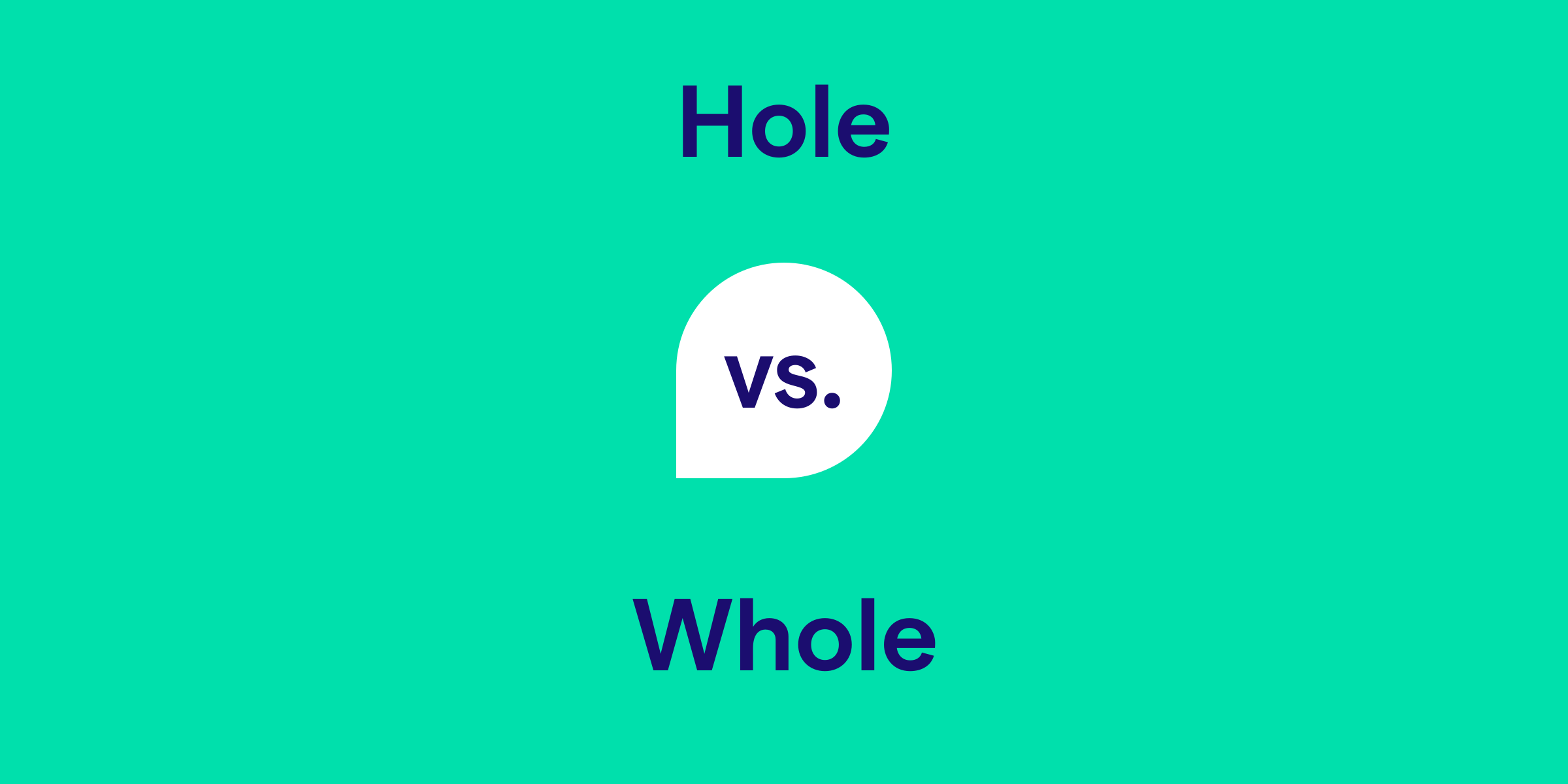Hole vs. Whole: What's the Difference?
The words hole and whole are homophones, meaning they sound the same but have different meanings and spellings. A hole refers to a gap, void, or an opening in a material or surface. Whole is used to describe something that is complete, entire, or not divided. Understanding the context in which each word is supposed to be used is crucial due to their auditory similarity.

How do you use the word hole in a sentence?
The word hole is commonly used as a noun to indicate an empty space or an opening through a solid surface. It can describe physical spaces in various materials, literal voids in objects, or metaphorical gaps in information. When using hole, it is important to give context that implies absence or emptiness.
Examples of hole in a sentence
- There's a hole in the bottom of the boat that needs to be patched up.
- She was in such a rush that she didn't notice the hole in her stockings.
- After completing the jigsaw puzzle, we realized there was a hole where a piece was missing.
How do you use the word whole in a sentence?
The word whole is primarily used as an adjective conveying totality or completeness. It often precedes nouns to indicate that all parts are present or that something is intact. Whole can also mean the entirety of an amount or extent, signifying undivided attention or effort.
Examples of whole in a sentence
- She spent the whole day reading her favorite book without interruption.
- The whole community came together to support the local food drive.
- It's better to eat a snack with whole grains for sustained energy.
Hole and whole definition, parts of speech, and pronunciation
Hole definition:
A hole is a noun that defines a hollow place in a solid body or surface, or an opening through which something may pass.
Hole parts of speech:
Hole pronunciation:
The word 'hole' is phonetically pronounced as hohl.
Whole definition:
The term whole is an adjective that signifies all of something, the full quantity, or the entire structure of an object.
Whole parts of speech:
Whole pronunciation:
The word 'whole' is phonetically pronounced as hohl, identical to 'hole'.
A hole is a noun that defines a hollow place in a solid body or surface, or an opening through which something may pass.
Hole parts of speech:
- As a noun: He dug a hole in the garden for planting the tree.
Hole pronunciation:
The word 'hole' is phonetically pronounced as hohl.
Whole definition:
The term whole is an adjective that signifies all of something, the full quantity, or the entire structure of an object.
Whole parts of speech:
- As an adjective: The whole pie was more than he could eat alone.
Whole pronunciation:
The word 'whole' is phonetically pronounced as hohl, identical to 'hole'.
Hole vs. whole in a nutshell
While hole and whole have the same pronunciation, they serve very distinct purposes in the English language. Hole typically functions as a noun to describe an absence or opening, conveying the concept of emptiness or a space where something could fit. In contrast, whole is mostly used as an adjective meaning undivided, complete, or entire. Grasping this distinction is key to using each word correctly in writing and speech.
Get AI Writing Assistance Wherever You Type
Make sure your vocabulary is on point and every punctuation mark is in the right place, no matter where you’re working. Grammarly works across more than 1 million websites and apps so you can improve your writing without copying, pasting, or breaking focus.

More Commonly Confused Words
Interest piqued? Pore (not pour) over other commonly confused words to help your writing reach peak (not peek) performance.